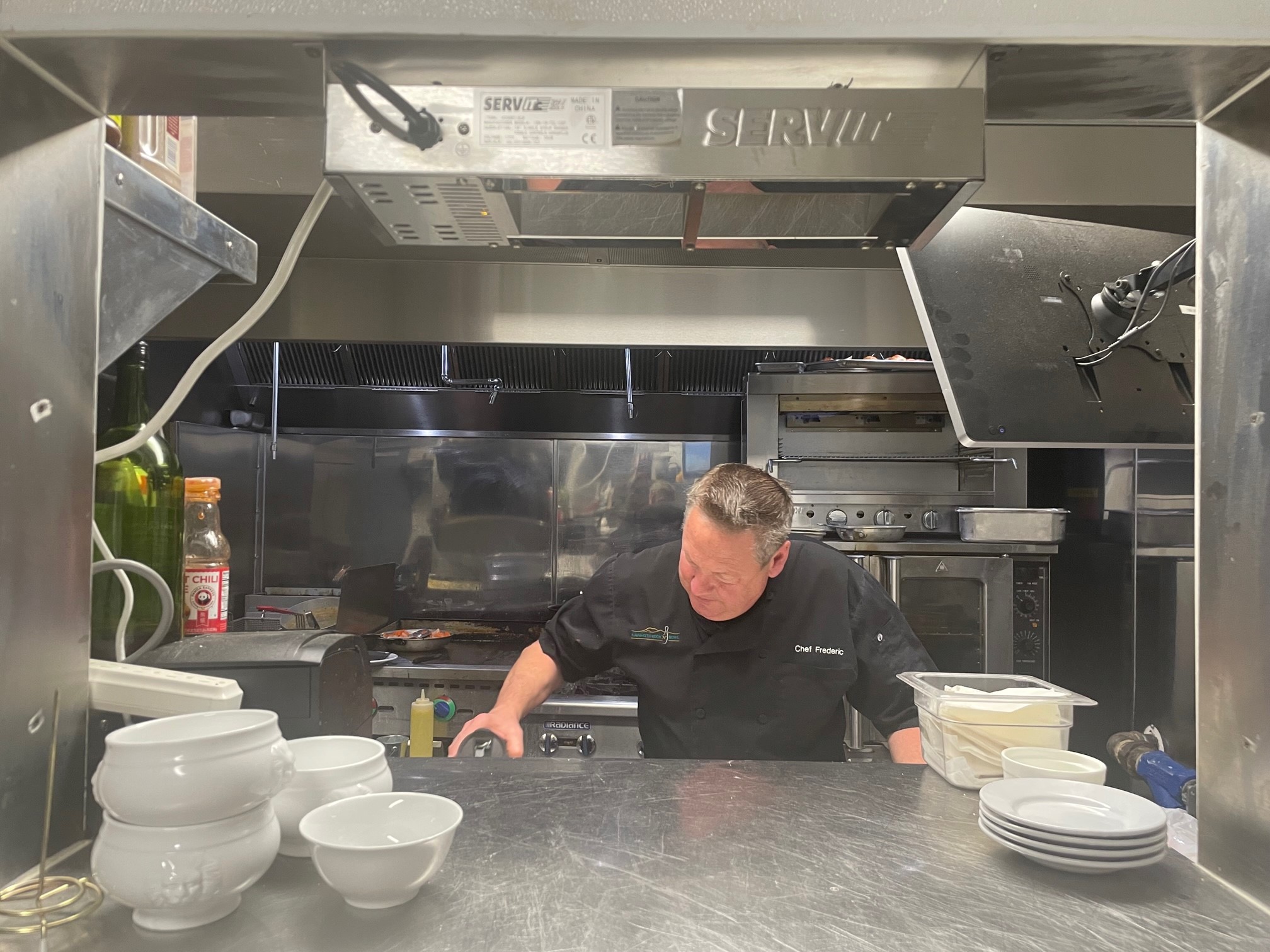as observed by Deb Pierrel Running a French bistro in Palm Springs, CA is more…

A Nod to Mother Earth
In today’s world, where climate change is large topic of conversation, recycling and composting are becoming increasingly important. These practices not only help reduce waste, but they also help the environment by conserving resources and reducing greenhouse gas emissions. One area where we can make a significant difference is in our kitchen. Coming from St. Die, a Village in France, we recycled and composted my entire life, so it is ingrained in my way of life and habits.
The kitchen is where we generate a significant amount of waste, from food scraps to packaging materials. Fortunately, there are many ways we can recycle and compost in our kitchens. Here are some of my habits and tips to get started:
- Separate your waste: The first step in recycling and composting is to separate your waste. Use separate bins for food waste, recyclable materials, and non-recyclable materials.
- Compost food waste: Instead of throwing food scraps in the trash, start a compost pile or bin. Composting turns food waste into nutrient-rich soil that can be used in your garden or house plants. Here in Palm Springs, our disposal company now takes it!
- This is now commonplace but keep reusable shopping bags in your car and at the ready for your trips to the market.
- Buy fresh and unprocessed products and choose products with minimal packaging. The more you use fresh ingredients, the healthier the meal, the more cost-savings for you, and less packaging to throw away.
- Recycle packaging materials: Many of the items that come into our kitchen, such as glass jars, aluminum cans, and plastic containers, can be recycled. Be sure to check your local recycling guidelines to see what can and cannot be recycled.
- Use reusable containers: Instead of using single-use containers for storing food, invest in reusable containers that can be used again and again. This will not only reduce waste but also save you money in the long run.
- Avoid single-use items such as paper plates and plastic utensils. There are many options now that are ‘multi-time’ reusable made from corn, pressed bamboo and more.
- Donate or repurpose: If you have items in your kitchen that you no longer use or need, consider donating them to a local charity or repurposing them into something useful.
Recycling and composting in the kitchen is an easy and effective way to reduce waste and help the environment. Using these practices – even just some of them – in the kitchen, we can reduce the amount of waste that ends up in landfills, where it can take years to decompose and release harmful greenhouse gases. Recycling and composting also help conserve natural resources by reducing the need to extract and process raw materials. We can all make a difference and contribute to a healthier planet.








